Imprisoned Fire Robbers: The Mainland Version of the Causeway Bay Bookstore Incident | News Reporter
Beast Press: I just finished writing the last article "Dai Xuelin, who was imprisoned for five years for selling Gao Hua's "How the Red Sun Rises ", and immediately discovered that Duan Media had reported on this in 2017. Wrote an article "The Imprisonment of Fire Robbers: The Mainland Version of the Causeway Bay Bookstore Incident ":
A "post-80s" book marketing editor was convicted of "illegal business operations" and sentenced to five years in prison for reselling books from Hong Kong and Taiwan through his personal WeChat account.
Duan Media reporter Su Xinqi from Hong Kong
2017-02-17
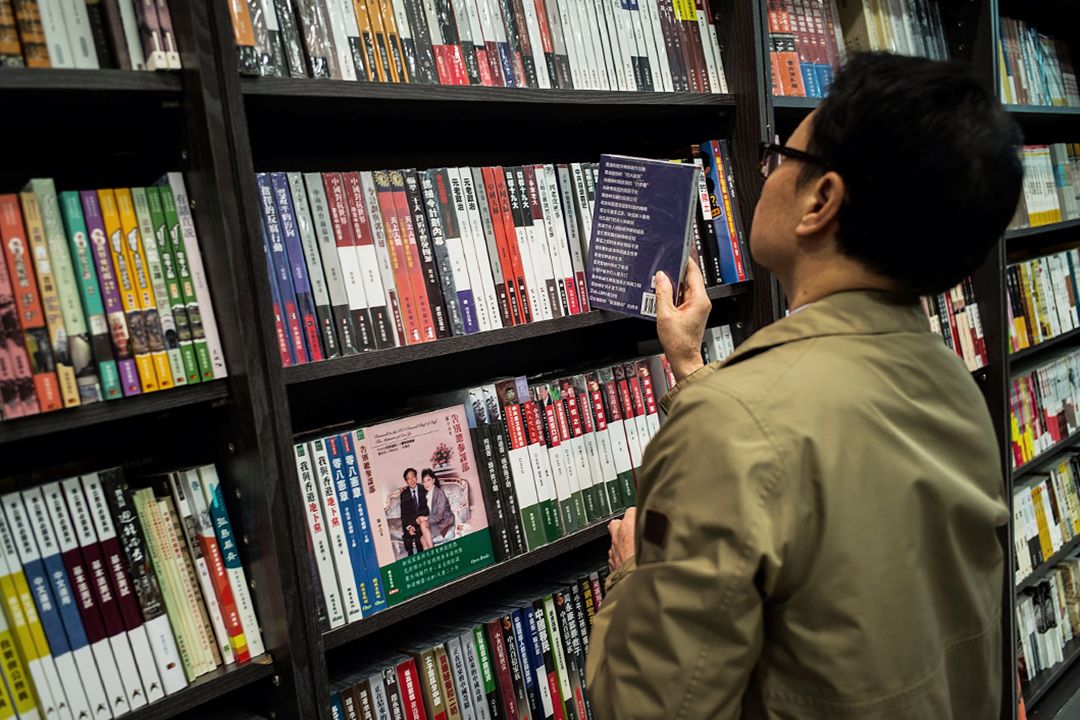
Everything was sudden. From being arrested to being sentenced, Dai Xuelin had almost no signs before the incident, and was only known to the outside world long after the incident. But everything was uneventful, no matter whether he was arrested or sentenced, the mainland media did not report anything about his case.
This young man born in the 1980s was originally the editor of the marketing department of the famous mainland book brand "Utopia". The brand is sponsored by Guangxi Normal University Press. It is one of the most influential cultural institutions in mainland China in recent years, publishing and promoting many important ideological works.
Part of Dai Xuelin's verdict uploaded from the Internet on February 10 shows that Dai Xuelin was arrested in Beijing on May 19 last year. The authorities accused him of using an individual named "Taboo Games" from May 2015 to May 2016. The sale of books from Hong Kong and Taiwan such as "How the Red Sun Rises: The Ins and Outs of the Yan'an Rectification Movement" (hereinafter referred to as "Red Sun") on WeChat constitutes an "illegal business crime". Dai Xuelin was convicted by February 10 this year and sentenced to 5 years in prison.
The Dai Xuelin case is closely related to the Causeway Bay Bookstore incident, which attracted much attention from Hong Kong people, and the case of Yang Hailing, the head of the Shenzhen-based online bookstore "YiRen.com" who was arrested last year.
The policeman in charge of the area where the "Utopia" office building is located said that the arrest of Dai Xuelin "is not a matter of the Beijing police, it was arrested by someone from Zhejiang, and we took them there."
Causeway Bay Bookstore
Relevant insiders revealed to Duan Media that "One Ren.com" is the main supply channel for "Forbidden Games", and Causeway Bay Bookstore is one of the sources of "One Ren.com". Last year, Hong Kong's "Apple Daily" reported that in April 2016, the female person in charge of "YiRen.com" who lived in Shenzhen was arrested, and her official Weibo "YiRen Culture" stopped updating after April 5 of that year.
Up to now, "YiRen.com" still cannot be opened normally, and the contact number left on "YiRen Culture" is also displayed as an empty number.
The details of Dai Xuelin's case include the purchase of more than 170,000 Hong Kong and Taiwan books from Yang Hailing, the person in charge of "One Ren.com". The amount of the books of "things" exceeds 90,000 yuan. Zhang Xiaoxiong, who dealt with Dai Xuelin in the same case, was accused of buying Hong Kong and Taiwan books for Dai Xuelin and mailing them to buyers. The two sold a total of more than 1,300 Hong Kong and Taiwan books, of which the amount of books identified as "illegal publications" exceeded 230,000 yuan.
"This circle is actually quite small," Qu Hantian (pseudonym), who has been selling Hong Kong and Taiwan books through the Internet for nearly 10 years, told a reporter from Duan Media . There was a problem. After (Yang Hailing) was arrested, someone told me that there was something wrong with Yiren, and I found out that Yiren's purchase channel is Causeway Bay (bookstore), and if there was an accident in Causeway Bay (bookstore), Yiren was involved. come in."
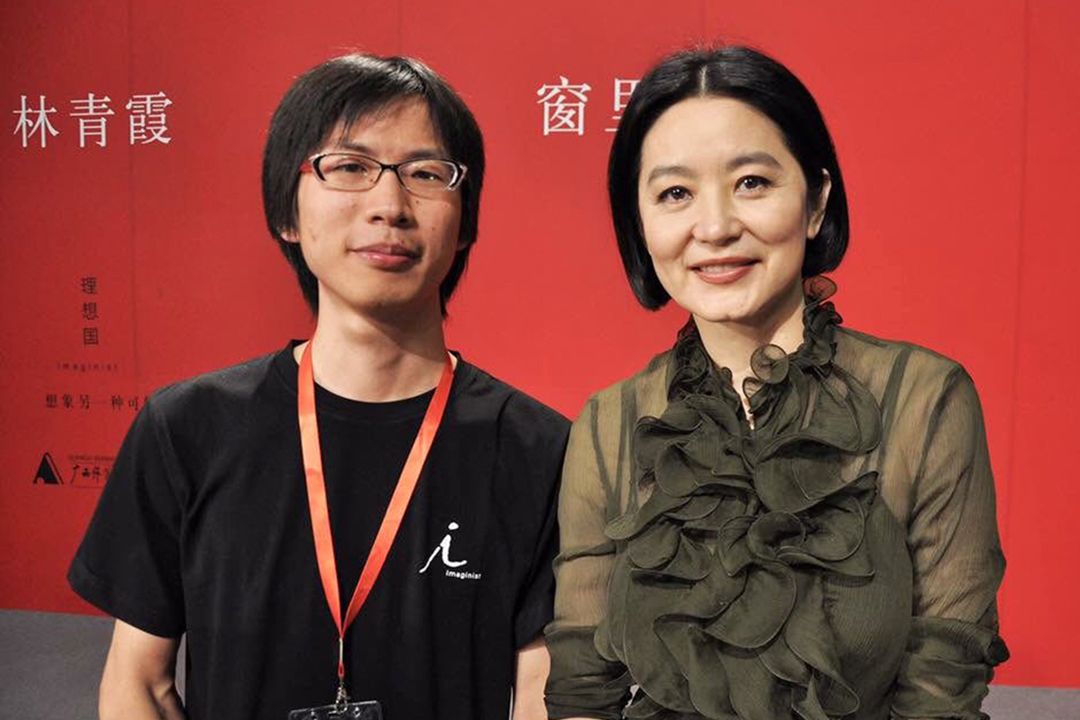
From October to December 2015, five people from the Causeway Bay Bookstore in Hong Kong disappeared one after another, shocking public opinion. (See Duan Media's topic "Causeway Bay Bookstore" for details.) At the beginning of 2016, the parties Gui Minhai, Lin Rongji, Lu Bo, and Zhang Zhiping were accused by the mainland police of "illegal business operation". Books, and there is no news of the case being heard at present.
After the arrest of Yang Hailing in Shenzhen in April 2016, no further information has been released on the progress of her case so far.
The office location of "Utopia" is Building 26, Xinghua Dongli, Hepingli, Dongcheng District, Beijing. A reporter from Duan Media called the police in charge of the area on February 12. The police confirmed on the phone that Dai Xuelin was indeed arrested in May last year. "But this is not a matter of the Beijing public security. It was arrested by people from Zhejiang. We took them there." The reporter asked whether the public security in Ningbo, Zhejiang, and why When Dai Xuelin was arrested and how the situation was at the time of the arrest, the policeman kept saying that it was too long and he couldn't remember, so he asked reporters to ask the police in Zhejiang.
In the Causeway Bay Bookstore incident, Lin Rongji, Li Bo, Lu Bo, and Zhang Zhiping were all arrested and dealt with by Ningbo police. Gui Minhai was originally from Ningbo, Zhejiang.
"After the accident at Yiren.com, I also chatted with Mr. Dai on WeChat. At that time, he said he was worried about Yiren's boss and didn't know if he would suffer. He also said that he should keep a low profile."
After Dai Xuelin was taken away, his family kept a low profile and did not accept media interviews. Up to now, Duan Media reporters have not been able to know whether Dai Xuelin has hired a lawyer and whether he has appealed.
Less than a week after Dai Xuelin was arrested, on May 22, 2016, Guangxi prosecutors announced that they had decided to arrest He Linxia, the former chairman of the Guangxi Normal University Press Group, which belongs to the "Utopia", on the grounds that he was suspected of taking bribes. He Linxia's case has yet to go to trial.
In November 2015, the agency published "The Realm of History," the posthumous work of Gao Hua, the author of "Red Sun" and a famous mainland historian, which was requested by the mainland authorities to be removed.
In his wife's circle of friends, he seems to be always there
"After the accident at Yiren.com, I also chatted with Mr. Dai on WeChat. At that time, he said that he was worried about Yiren's boss and didn't know if he would suffer. He also said that he should keep a low profile, but then one day, I suddenly found Dai The teacher's circle of friends is not updated anymore." Lu Jingxi (pseudonym), who is a senior in a university in Guangdong Province, told a reporter from Duan Media.
Lu Jingxi has known Dai Xuelin through WeChat for two years. Usually, Dai Xuelin will use his personal WeChat account of the same name to deal with the affairs of the "Utopia", and he also pays great attention to cutting his relationship with the "taboo game". In Lu Jingxi's impression, "Dai Xuelin" only forwarded the book "Forbidden Game" when it couldn't sell, and would say "help transfer".
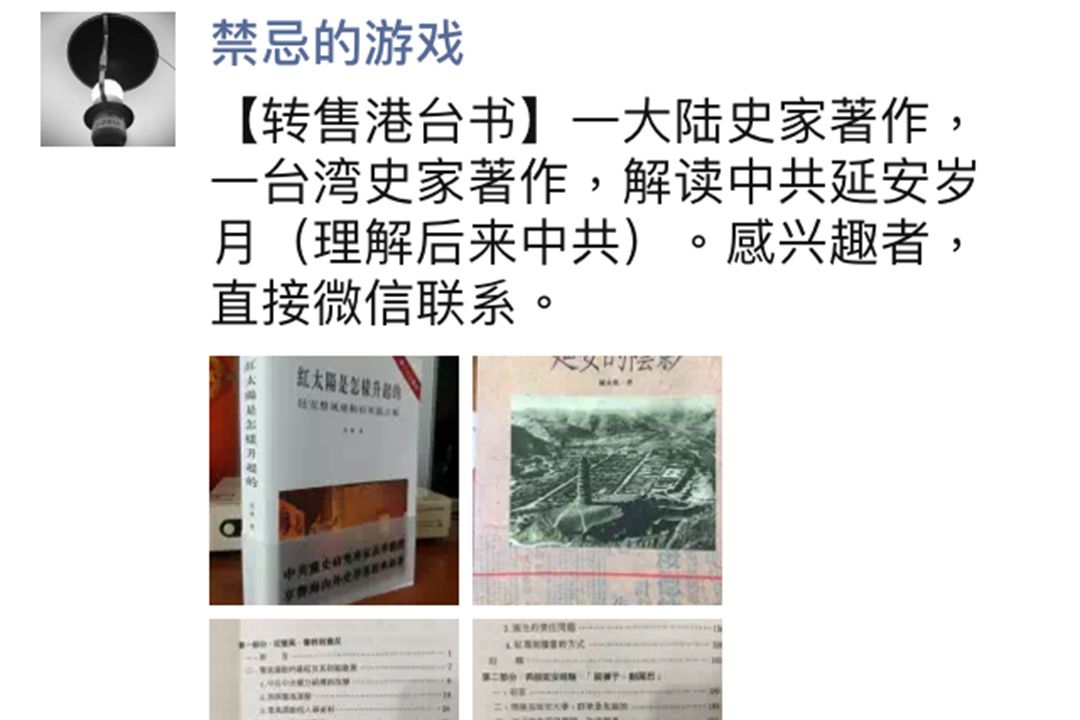
In June 2016, Lu Jingxi asked Dai Xuelin's wife "Beta" (WeChat name) on WeChat, "Why is Mr. Dai not using WeChat? Why can't I get in touch recently?" At that time, "Beta" told Lu Jingxi, "Mr. Dai is okay, Sometimes we are busy with work and can't meet up." Later, Lu Jingxi learned that Dai Xuelin had already been arrested at that time.
Dai Xuelin's friend and a person from the mainland cultural circle, Ximu Xiangduan Media reporter, said that they had had a connection between seeing reports that Dai Xuelin lost contact in May 2016 and was confirmed to be taken away by the police in September. Ximu can't remember the exact date, but it should be shortly after Liu Ruilin, the editor-in-chief of "Utopia", was "resigned" on the Internet. Ximu asked Dai Xuelin about this, and Dai Xuelin quickly replied, "Although there is a turmoil, everything is fine, don't hang up, don't read." When Ximu asked again, Dai Xuelin stopped talking.
On the community page "Ideal Home Community" of "Utopia", there was such a group of questions and answers 8 months ago. Netizens asked each other: "Where is the ideal country operating officer Dai Xuelin? I haven't heard from him for a long time. Is everything going well? Is he still working in the ideal country?" "River" replied: "Xuelin has a family member recently. Personal matters, I will be away for a while, I will come back in a while, thank you for your concern!"
On February 12, well-known writer Zhang Yihe revealed through his personal Weibo that at the end of 2016, he received a letter from "Little D" from the detention center, asking Zhang, "I don't know how you spent your time in prison."
After the news of Dai Xuelin's sentence was publicly reported, on February 12, well-known writer Zhang Yihe revealed through his personal Weibo that at the end of 2016, he had received a letter from "Xiao D" from the detention center, saying that he had registered his marriage with his girlfriend in March of that year. , originally planned to hold the ceremony in September, and asked Zhang to be a witness. I didn't expect to "go in by myself" in May, and asked Zhang, "I don't know how you spent your time in prison."
Her husband, who had only been married for two months, was arrested. After that, "Betta"'s circle of friends appeared from time to time with "show affection" posts. ."
On October 31, 2016, "Beta" posted a selfie photo of her and Dai Xuelin. "Beta" wearing a red woolen hat was behind Dai Xuelin, holding his arm. Dai Xuelin had short hair and thick rectangular glasses. , In the photo, the sun is bright, blue sky and white clouds, and the two are smiling gently at the camera. The caption of "Beta" is "I will always love you."
On January 16 this year, "Beta" posted three photos of Dai Xuelin, saying "the three photos are of him in 2011, 2014 and now", and joked, "His colleague said that after he was with me, this wear The taste of clothing has improved a lot, um, it is a lot more handsome, hahaha." In the photo referred to as "he is now", Dai Xuelin is wearing a shirt, a sweater, and the pair of rectangular thick-rimmed glasses, but it is difficult to understand Image judgment shooting time.
Less than a month later, on February 10, the document photos of Dai Xuelin accused of selling illegal publications leaked. Lu Jingxi said that "Beta"'s circle of friends was invisible to her that day.
In the summer of 2016, online purchases of books from Hong Kong and Taiwan were subject to strict investigation by the authorities
"So angry, so sad, so wronged!" This is Lu Jingxi's series of reactions after learning that Dai Xuelin was sentenced to 5 years in prison, "This is really dark humor, Mr. Dai sold Chinese people in China and wrote another Chinese person's story. The book was actually sentenced."
Although it is regarded as a "banned book" by the mainland, Lu Jingxi's observation is that there are many ways to get these so-called "banned books", and e-books are more widely spread than high-priced physical books. "I used to see people on Douban often use 'Baidu Cloud' or something to share this kind of book. So, seeing Mr. Dai sentenced to five years for such a 'banned book', which is not a minority, I feel very injustice."
Zeng, a lawyer specializing in copyright law at Guangdong Sanhuan Huihua Law Firm, told Duan Media that theoretically, in mainland China, as long as the publications are not issued by publishing units approved by the Chinese government, they cannot be used for profit distribution in the mainland. "Illegal publications" are generally divided into three categories, one is piracy, the other is pornographic and violent, and the other involves political issues, such as subversion of state power, destruction of national unity, etc. "If the content of the book, To use a word from the Cultural Revolution, it is 'reactionary' and is very opposed to the current regime and politics.
Lawyer Zeng said that the Hong Kong and Taiwan bookstores on the e-commerce platform themselves are a blurred area in the mainland judicial circle, "the same as overseas purchasing", if Taobao store owners bring a large number of illegal goods into the mainland through illegal means, then It is the responsibility of the shop owner to carry out distribution and profit, "but this process is very difficult to define".
According to Duan Media reporters, from the beginning of March to the beginning of July last year, there were many cases in mainland China. Individuals were asked by the police to confiscate books published by Hong Kong and Taiwan, or called for interviews, or asked to take photos for backup, or asked to assist in the investigation. , or was accused of "suspecting the purchase and storage of illegal publications". Most of their books are obtained through online shopping or purchasing on behalf of others. Some of them involve politics and cannot be published in the mainland. The parties in these cases were very cautious when asked about the incidents that the Hong Kong and Taiwan Books provoked the public security.
Mr. Cheng said that in the summer of 2016, the police conducted subpoenas and inquiries in many places across the country based on the customer list of "YiRen.com". "It's been more than a month before and after." ".
On March 4, 2016, a total of 5 people from the Culture, Broadcasting, Press and Publication Bureau of Jiangdong District, Ningbo City and the police entered the office of lawyer Yuan Yulai. The person brought in a package and opened it on the spot, which contained 14 Hong Kong and Taiwan books that Yuan Yulai purchased through Taobao. The visitor pointed out that Yuan Yulai was "suspected of purchasing and storing illegal publications." He made a transcript on the spot, and 14 books were seized as "evidence".
On July 4, the netizen "Cocoon Zhai Sangnon" posted on Weibo for help: "The police came to confiscate the book I bought on Taobao just now" - published by Oxford University Press and written by Dong Qiao, "Night see". At noon on July 6, "Cocoon Zhai Sang Nong" posted on Weibo again: "I just came back from the police station, and the book is temporarily reserved for academic research needs and goodwill third-party rights."
In the early morning of July 7, all the Weibo messages of "Cocoon Zhai Sang Nong" about the "book collection" incident disappeared - the page shows that it was deleted by the author. On the morning of the same day, a reporter from Duan Media called "Cocoon Zhai Sangnong", and he kept saying, "The matter has been resolved, and I have nothing to say, okay..."
On the evening of July 5, Lin Daoqun, editor-in-chief of the Popular Publishing Department of Oxford University Press China, forwarded the news of another netizen "-aller-" on Weibo: "It is said that Taobao and other places have a lot of books from Hong Kong and Taiwan. The owner of the shop was checked, and then the book buyer was found to confiscate the book according to the purchase record of the computer, and the police station was dispatched, including Beijing, Tianjin, Shanghai and Guangdong.
Also on July 5th, at 1:00 noon, the netizen "Te5la" posted on Weibo: "Just now, the police station called from a mobile phone number, saying that I bought a book on a certain day in a certain month last year (the day should still be quite good). Exactly, my name and the address of the police station are very clear), the book seller has already been dealt with, and asking me to take the book to the police station seems to be backing up the photos and saving the data. I thought about it, it should be the Oxford "The Biography of Chu Anping" published by the university and "China in Ten Words" by Yu Hua."
Mr. Cheng from Quzhou, Zhejiang also told a reporter from Duan Media about a similar situation, but the source of the police list was more specific to "Yiren.com". Mr. Cheng originally opened a bookstore in Guangzhou. He closed his school in early 2015 and returned to his hometown in Quzhou. However, he still buys books for friends and regular customers, including the purchase of "20 or 30 books from Yiren.com in early 2016. I can't remember the exact number." "Books.
Mr. Cheng said that in the summer of 2016, the police conducted subpoenas and inquiries in many places across the country based on the customer list of "YiRen.com". "It's been more than a month before and after." ". On July 6 of that year, the local police in Quzhou called Mr. Cheng and asked him to explain the situation at the police station.
Mr. Cheng said that the police were very polite and did not specifically mention the specific bibliography, because his books had already changed hands and had not been confiscated. The whole process "may take half an hour". Mr. Cheng didn't want to talk about the specific situation at that time. "There are many places in the country. I am a small place here. I have nothing to say. Don't cause trouble."
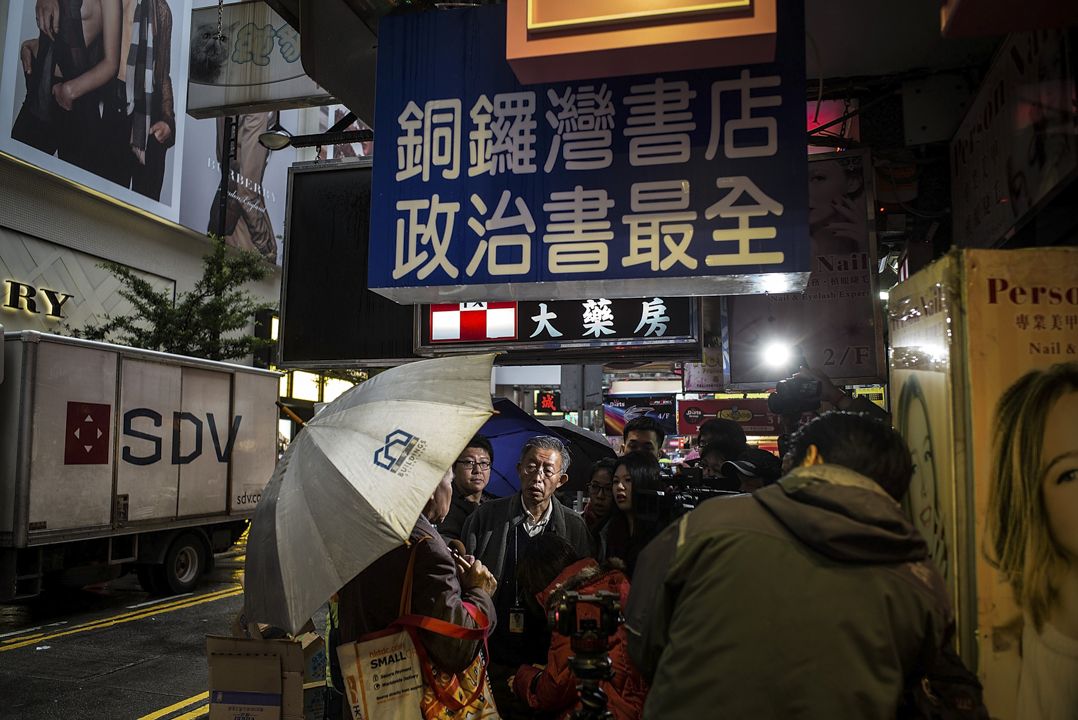
Bookseller whose home has been ripped off: Self-censorship, no politics and history
A few years ago, Qu Hantian, who runs books from Hong Kong and Taiwan in the mainland, was forced to hand over the list of book buyers to law enforcement officials.
It was one morning, seven or eight unidentified people knocked on his door, and then confiscated all the books in the house, including his computer. Qu Hantian was taken to the local cultural bureau, and only then was informed that the "law enforcement officers" included people from the industrial and commercial department and the cultural law enforcement department. Qu Hantian estimated that there were also national security or national security personnel. He was detained for 5 hours at the Cultural Affairs Bureau, "I did an investigation and said that I sold Hong Kong and Taiwan books, illegal publications, and took a 'legal popularization class'. Now it looks like it's completely intimidating. There is a crime in the mainland called incitement (inciting subversion). state power), at that time I didn’t know there was any illegal business, so I said that this incitement could be sentenced to as many years as possible.”
Before his release, Qu Hantian was forced to hand over the list of buyers. "My computer was taken away."
Qu Hantian was confiscated about 1,000 books, including dozens of books from Hong Kong and Taiwan. The authorities only showed him a written certificate about the confiscation of these properties, but did not let him keep the document. Among the confiscated books from Hong Kong and Taiwan were books about Mao Zedong - but he can't remember the name, and "The Course of Reform" by former CCP general secretary Zhao Ziyang. Qu Hantian said that when he first entered the business, he just read this book, "The history of mainland studies and the introduction in the Hong Kong and Taiwan books are quite confusing. I think one is to make money, but to pass on information. ."
"If it weren't for my own so-called feelings and ideas, I would have done other fucking work if I had the thought and time."
After his home was raided, Qu Hantian still sold Hong Kong and Taiwan books online, but began to sell some "more peaceful" books. Although he might have earned four or five thousand less per month by not selling "banned books" that were in short supply, he moved out of the market. I went to that city, and has never been found by the authorities.
He said that after the Hong Kong Causeway Bay Bookstore incident, he was obviously nervous, "It's not that the outside world gave me the tension, but I was more nervous. Move closer to the white area, this thing is very flexible, and I don’t know when something will happen.” He said that he planned to “do not touch politics and history at all”, “Do it in a self-censorship way, book selection. At times, if there is a slight hint, and it involves Chinese politics, it will not be done.”
Dai Xuelin did not "turn around in time". In November 2015, "Forbidden Games" said in a circle of friends: "If it weren't for my own so-called feelings and ideas, I would have done other things with my mind and time."
In May 2016, Dai Xuelin was arrested, and in February 2017, Dai Xuelin was sentenced, but a few words could not be found in the mainland media.
And "the crime scene" - the "taboo game" circle of friends that has not been updated for a long time, the bottom of it reads: "Yeah is silent."
sound
Sensitive characters are everywhere, and a simple post makes it extra sensitive.
Dai Xuelin's Douban Diary, April 22, 2009
Those who spread yellow text messages will all be rude to you. Nasty, do you need a reason? From a developmental point of view, disgusting things will happen one after the other.
Dai Xuelin's Douban Diary, January 19, 2010
Here, I may make a small wish: as long as I know that the mainland version of a certain work is a "castrated version", even if it has been released in Hong Kong and Taiwan, I will not hesitate to buy it, especially those publishers who have pursuit, Just because you dance in chains.
Dai Xuelin's Douban Diary, May 6, 2010
If it is in a society ruled by law, there will not be so many knights; in other words, if knights are popular, then this country must not be a country ruled by law. Under the current situation, the traditional knights have lost the soil for their survival; and I also see that the real knights are less "going", and the "qi" of the knights is increasing.
Dai Xuelin's Douban Diary, November 11, 2010
Mom, I'm hungry, what should I use to fill my stomach, the refrigerator is empty. Dad, my throat hurts and I want to gulp down water, but there's only so much water left.
Dai Xuelin's Douban Diary, May 26, 2011
"How the Red Sun Rises"
The Chinese historian Gao Hua (1954-2011), through more than ten years of research, wrote about the ins and outs of the Yan'an Rectification Movement, the first large-scale political movement within the Communist Party of China that Mao Zedong personally led, and particularly carefully dissected "the The two methods of thought remolding and the trial of cadres and the elimination of counter-revolutionaries”, and how a series of concepts and paradigms emerged from this movement “changed the lives and destiny of hundreds of millions of Chinese people after 1949.” The study was published in the Chinese University of Hong Kong Press in 2000 and has been reprinted dozens of times. The publishing house described this book as "the only historical work at home and abroad that comprehensively studies the rectification movement in Yan'an". The book has not been published in the mainland, but insiders in the book business in Hong Kong and Taiwan say there has been strong demand for the book. It is said that "the original price is 165 RMB, and some people are willing to buy it when it is sold for nearly 300 (RMB)." In 2002, when mainland lawyer Zhu Yuantao entered Beijing Capital Airport, he brought "Red Sun" and was confiscated by customs. Zhu went to court for this, claiming that the book was a rigorous work on party history and did not meet the criteria for identifying an "illegal publication". After losing the first-instance case, Zhu continued to appeal, and the Beijing High Court finally won the case, but the reason was that the customs procedures for the punishment were unclear and did not involve the determination of the nature of the book.
In July 2017, Duan Media launched a membership mechanism to pay for in-depth content. The in-depth original reports published before this will be open for free, welcome to forward, and we look forward to your paid support.
Original text: "The Imprisoned Fire Thief: The Mainland Version of the Causeway Bay Bookstore Incident" https://theinitium.com/article/20170217-mainland-daixuelin/?utm_medium=copy
© Initium Media
Duan Wen
Mainland book editor sentenced to five years in prison for "illegal business operation" for resale of "banned books" in Hong Kong and Taiwan
2017-02-11
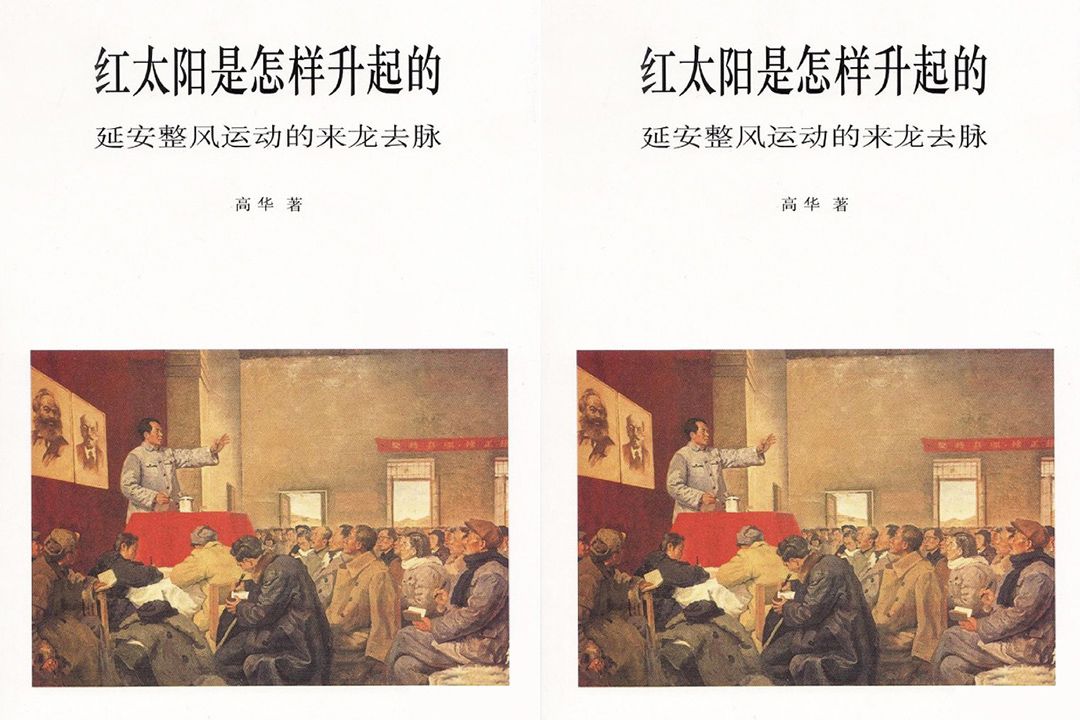
According to Ming Pao, Dai Xuelin, who was the marketing editor of the famous mainland book brand "Utopia" since his disappearance in May last year, recently learned for the first time that he has been charged by the authorities for resale of "illegal publications" published in Hong Kong and Taiwan. He was sentenced to 5 years in prison for the crime of "illegal business operation".
This charge has appeared several times in recent years in the indictments of mainland authorities against persons related to trafficking in political "banned books".
sound
The Chinese were sentenced to 5 years in prison by the Chinese government for selling the books of Chinese professors in China.
Mainland netizens satirize the case
Ming Pao pointed out that Dai Xuelin was accused of selling more than 1,300 Hong Kong and Taiwan books in partnership with another defendant Zhang Xiaoxiong from May 2015 to May 2016, of which the amount identified as "illegal publications" amounted to more than 230,000 yuan ( RMB, the same below), was sold by Dai Xuelin on the WeChat public account "Forbidden Games".
With the exception of the academic book How the Red Sun Rise - The Ins and Outs of the Yan'an Rectification Movement, by the late mainland historian Gao Hua, the report did not list which "illegal publications" Dai sold. The book "Red Sun" has been reprinted dozens of times since it was published by the Chinese University of Hong Kong Press in 2000.
The Ming Pao report mentioned that the authorities accused Dai Xuelin of buying books from Hong Kong and Taiwan totaling more than 170,000 yuan from Yang Hailing, the head of the Shenzhen-based online bookstore “One Ren.com”. , to earn the difference. According to a report by Apple Daily, the source of the book "One Ren.com" is supplied by Hong Kong's Causeway Bay Bookstore. Lam Wing-kee, the former manager of Hong Kong’s Causeway Bay Bookstore, said in response to Ming Pao that he did supply a lady Yang in Shenzhen, but he didn’t know her full name or whether her unit was “Yiren.com”.
Dai Xuelin, now in his 30s, works in Beijing on weekdays. He lost contact after being arrested by the Beijing police on May 19, 2016. It was not until September that his relatives and friends confirmed that he was taken away by the police. However, his wife kept a low profile and did not publicly disclose the case. .
Dai Xuelin has long served as the marketing editor of the well-known mainland book brand "Utopia", and the manager of the "Utopia" Weibo and WeChat accounts. The brand has published a large number of excellent books in the fields of social sciences, history, literature, and art, and has held various cultural lectures, salons and other activities.
According to previous reports, two months before Dai Xuelin was taken away by the Beijing police, He Linxia, the former chairman of Guangxi Normal University Press Group, was also arrested by the police on suspicion of taking bribes. At the time, mainland writer Zhang Yihe told Apple Daily that she believed that He Linxia’s investigation had something to do with “those sensitive political books published by him” and was “another case of the authorities using economic means to deal with sensitive political issues.”
In recent years, the authorities have often used "illegal business operations" to accuse authors, publishers, and mailers related to "banned books". In the "Causeway Bay Bookstore Case" that shocked China and foreign countries last year, Gui Minhai, one of the shareholders, was accused of illegal business operations, selling books to China without obtaining a distribution license from the press and publication department.
In July 2016, Wang Jianmin, the founders of Hong Kong political magazines "Xinwei Weekly" and "Facebook", and Lieutenant Colonel Xie were also sentenced for "illegal business operations". Wang's wife even helped her husband send magazines published in Hong Kong to the mainland. client convicted.
In 2015, Tie Liu, an 82-year-old well-known rightist writer, was convicted of "illegal business operations" for his own printing of the journal "Micro Marks in the Past", which described the experience of the anti-rightist movement.
Source: Ming Pao
Original text: "Mainland book editor sentenced to five years in prison for "illegal business operation" for resale of "banned books" in Hong Kong and Taiwan" https://theinitium.com/article/20170211-dailynews-hk-political-books/?utm_medium =copy
© Initium Media
Heavy Investigation: Death of Banned Book Reader, Author and Publisher One Year After Causeway Bay Bookstore
Hong Kong's "banned book" publishing industry is now facing extinction: authors dare not write, publishers dare not accept, printing houses dare not print, bookstores dare not sell, landlords dare not rent books to bookstores, truck drivers dare not deliver, and mainland tourists dare not buy - Even online shopping can be caught.
Duan Media reporter Chen Qianer Zhang Jieping Sun Xianliang from Hong Kong 2016-12-30
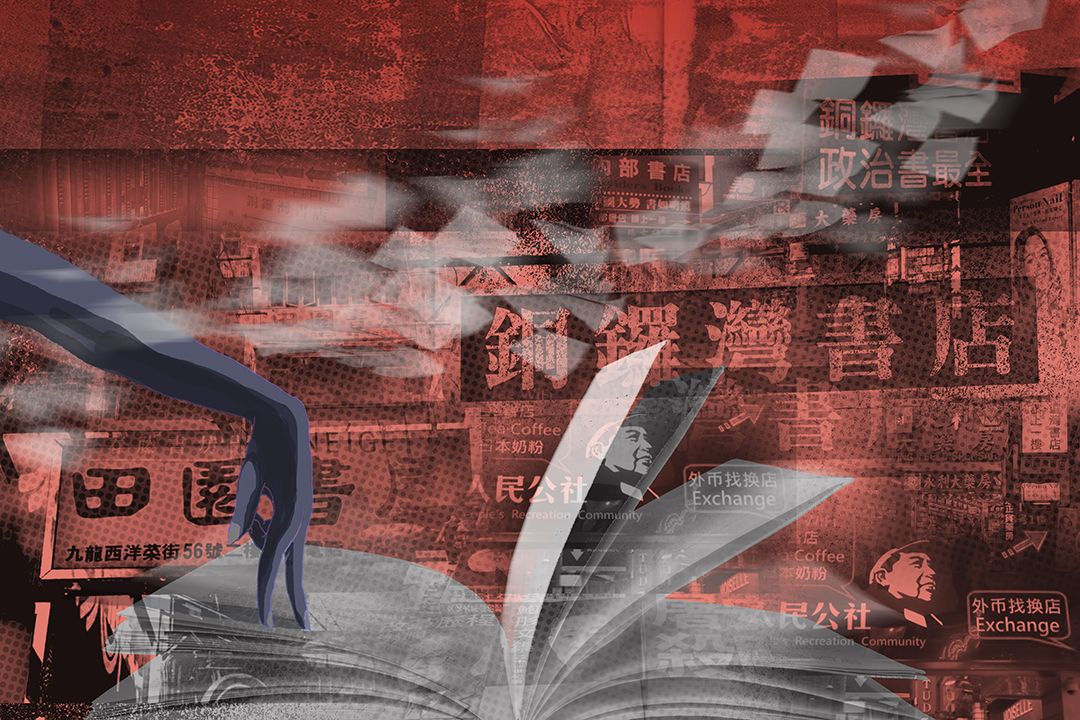
After the Causeway Bay Bookstore, the oldest independent bookstore and distribution agent in Hong Kong, Tianyuan Bookstore, is about to fail. Unlike the former's sudden death, Huang Shangwei, the owner of the pastoral business for 40 years, felt that he was slowly losing his head along with the entire industry.
"I'm sad when you ask about this..." In the coffee shop in Mong Kok, Huang Shangwei lowered his head and spoke quickly: "I can't bear it anymore, it's hard to bear it. There are no books to send, and no books to send."
Maybe we just accept it quietly, don't get into trouble, we think we're doing it right, but maybe others don't. —— Huang Shangwei, owner of Hong Kong Pastoral Bookstore
He is 70 years old this year. He is not tall, gray-haired, low-key and shrewd. He has been a bookseller for more than half his life, but he has never been so discouraged for a moment. In 2016, it was the 40th anniversary of the bookstore, but Huang Shangwei said: "Maybe we will accept it quietly, and don't cause trouble. We think we are doing it right, but maybe others think not."
Tianyuan Bookstore specializes in books on literature, history and philosophy, as well as a large number of books agency and distribution. Most of the books issued are related to Chinese politics and history, and many of them are commonly known as "forbidden books" by the outside world. When Huang Shangwei has spare money, he will also publish books for authors he admires. In 2016, Tianyuan's retail sales fell by 30% compared with the previous year, while the distribution business plummeted by 90%.
Another independent bookstore, People’s Commune, which specializes in banned books and milk powder, also told Duan Media, “This year’s business has been bleak, with a loss of several thousand to 10,000 a month.” In 2012, when the sales of banned books were the most popular, this The monthly profit of a bookstore can be 500,000 to 600,000 yuan.
This is the year after the Causeway Bay Bookstore incident.
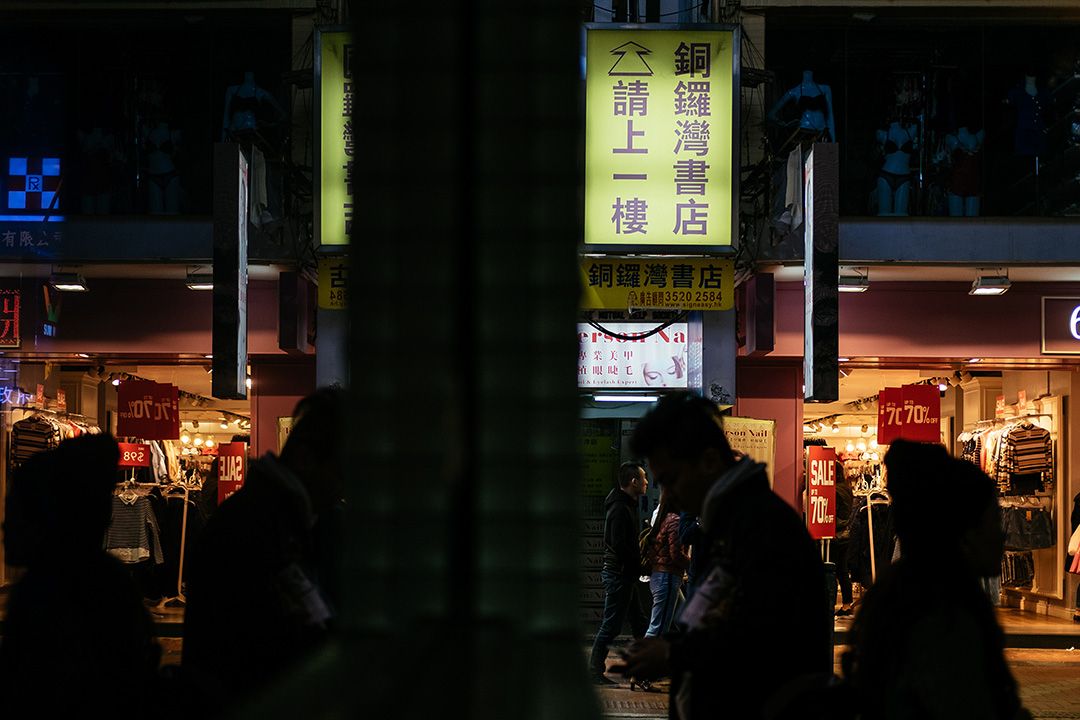
On December 30, 2015, bookseller Li Bo suddenly disappeared in Hong Kong and "returned" to the mainland without a home-return permit. Earlier, the Mighty Liu Publishing House and Causeway Bay Bookstore, where he worked, specializing in selling politically banned books, had four. A colleague has disappeared from the mainland and Thailand. Soon, the five appeared on CCTV and Phoenix TV to admit different charges. Among them, the manager of the bookstore, Lin Rongji, appeared eight months after he disappeared and held a press conference to tell the story of the detention, which shocked Hong Kong.
In the year after the incident, in Hong Kong, as long as they operated political publications related to China, everyone felt the severe cold: authors dared not write, publishers did not accept them, printing houses did not dare to print, and bookstores did not dare to sell them. Landlords are afraid to rent books to bookstores, truck drivers are afraid to deliver, and mainland tourists are afraid to buy—even online purchases will be arrested.
The banned book industry, which had flourished in Hong Kong for 20 to 30 years, was almost wiped out within a year or two.
Compared with the shrinking industry and the difficulty of doing business, what worries the old bookstore people more is the spread of fear:
Deng Ziqiang said that when a mainland customer came to the bookstore, the first sentence he asked was, "Is there any surveillance here?"
Huang Shangwei mentioned that friends have become very sensitive now. When mainland writers come to Hong Kong, when everyone meets, they avoid asking them where they live: "In case you are caught by your friends and think I leaked (the news). "
"I don't even want to talk anymore. How pitiful. How could there be such a thing before? Not at all." The old bookseller said with a wry smile.
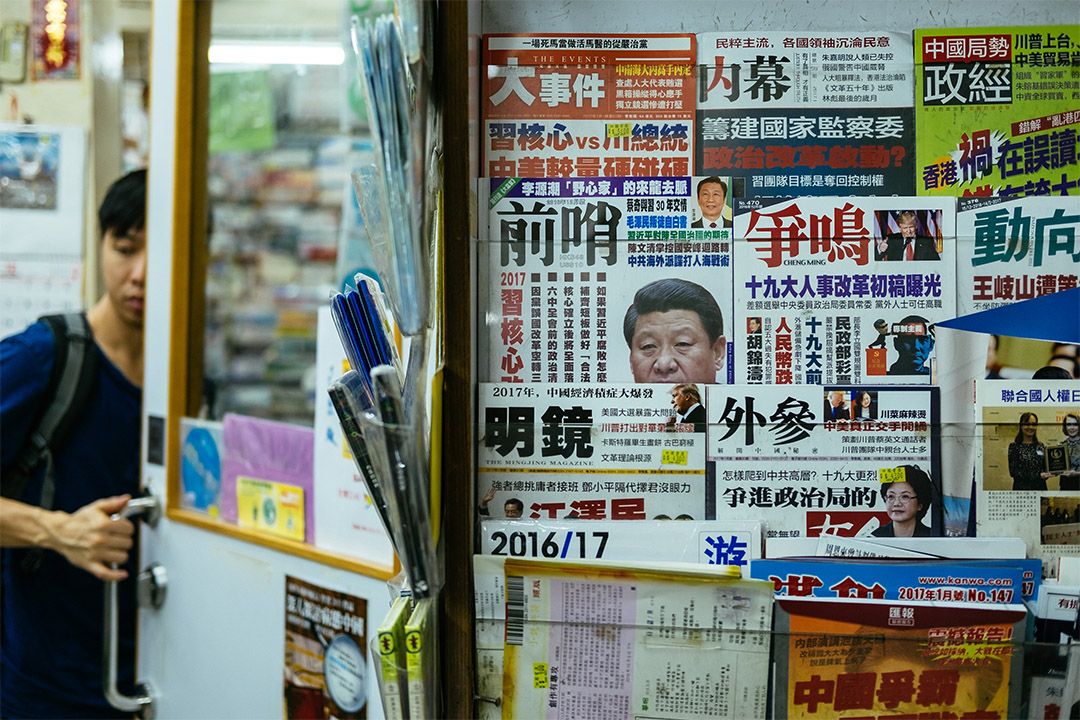
A forbidden book saves the whole line
In 1976, Huang Shangwei returned to his hometown of Hong Kong after graduating from National Taiwan University and founded the Pastoral Bookstore.
At that time, the Cultural Revolution in mainland China had ended, the frozen market for ideas had just been unsealed, and discussions about the future of the country had resumed. Huang Shangwei remembers that in Hong Kong, political commentary magazines focusing on China's political history began to receive contributions from Chinese intellectuals from all over the world, and became prosperous, such as "Ming Pao Monthly" founded by Jin Yong, "70s" founded by Li Yi, In the 1980s, there was Open, founded by Jin Zhong, and so on.
Bao Pu, a Hong Kong publisher and son of Bao Tong, the former secretary of the Communist Party General Secretary Zhao Ziyang, told Duan Media, "In the 1980s, Hong Kong's political publications did have an impact on Beijing's political situation." In 1985, Hong Kong journalist Lu Keng interviewed Hu Yaobang and Published in the magazine "People" founded by him, Hu Yaobang's words in this interview were considered to be "one word for the state" and even implicated him in his resignation. Bao Pu said: "Back then, there was a group of elderly people in Zhongnanhai, Beijing, holding books from Hong Kong to send each other. Before June 4, senior officials in mainland China would also use Hong Kong media to broadcast news."
In 1989, the June 4th shooting shocked both home and abroad. Hong Kong and Taiwan are more concerned about the current situation in China. Political articles and news are not only circulated in intellectual circles, but also become best-sellers in the market.
Huang Shangwei recalled that in the 1990s, the environment was relaxed and customs inspections were not strict. "The streets were full of political commentary magazines. The best-selling issue was "Contending", and the best issues sold over a million copies. "The airport is the largest Many mainland tourists bought them and brought them back to their relatives and friends.” He specifically mentioned that at that time, the airport bookstores were dominated by Singapore’s Huajie, unlike now, “all of them are almost monopolized by United Group”.
Magazines could no longer meet market demands. In the early 1990s, a number of banned books on Chinese politics began to emerge.
The founder of Causeway Bay Bookstore, Lam Wing-kee, was working in the Garden Bookstore at the time. He remembered that the first banned book to sell more than 10,000 copies in Hong Kong was the fabled novel "The Yellow Peril" published in 1991. The author was Wang Lixiong, an expert on Chinese ethnic issues, under the pseudonym "Confidentiality" at the time. The book depicts China's deep political, economic, demographic and ecological crisis, its eventual collapse, and the imagery of a large number of refugees fleeing China.
In fact, it has always been difficult to write a book in Hong Kong. "Memoirs of Mao Zedong's Private Doctor" can be said to have saved the whole bank - Ms. Zhang of Pastoral Bookstore
In 1994, the phenomenon-level banned book "Memoirs of Mao Zedong's Private Doctor" (referred to as "Mao Doctor") was published . The book, written by Mao Zedong's personal health care worker Li Zhisui after he moved to the United States, revealed Mao Zedong's little-known private life. It was first published in the United States and the Chinese version was published in Taiwan. Huang Shangwei remembers that as soon as "Mao Medicine" was listed, it was hard to find a book in Hong Kong. Tianyuan, as a publisher, introduced 300,000 copies before and after, and this book alone made a net profit of 1.95 million.
"Actually, it has always been difficult to make a book in Hong Kong. "Mao Doctor" can be said to have saved the whole bank. At that time, even if the bookstore did not offer discounts, many people bought it, and the bookstore could earn more than 50 yuan per book. Miss said.
It was the first taste of the huge benefits of banned books. Since then, the banned book industry has flourished in Hong Kong for 20 years, supporting booksellers and allowing many voices on the bench of history to be heard by the world.
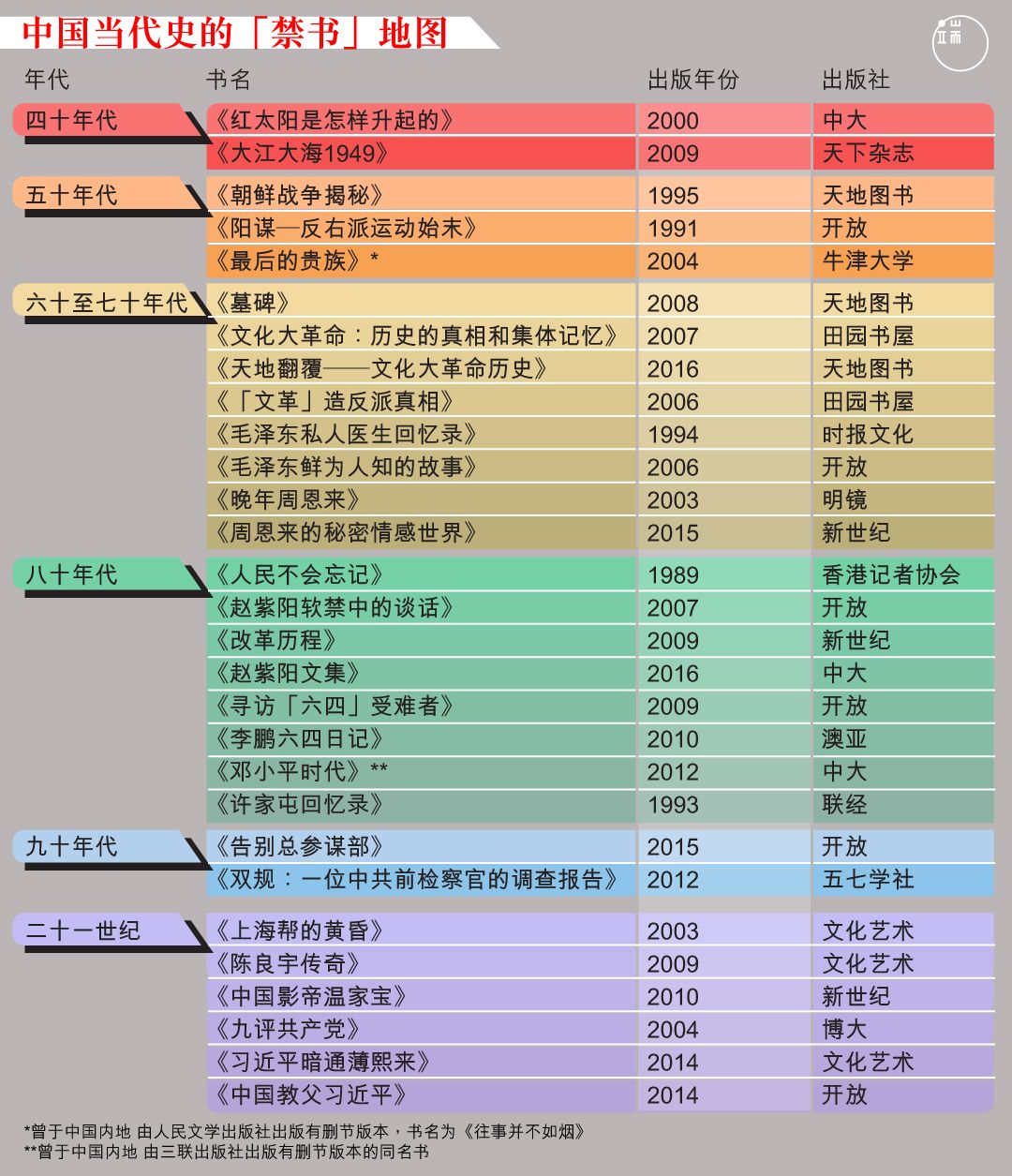
Dai Qing, a famous Chinese non-fiction writer, thanked Hong Kong in an interview with a reporter from Duan Media: "After 1989, my name was blacklisted. All published books were taken off the shelves, and the publishing house no longer accepted my works. But no Change careers, I will only be able to write in my life, so all my works, what I want to say to readers and compatriots, are all published through Hong Kong. The only place where I can express my voice is Hong Kong.”
The author Dai Qing lives in mainland China, and most of her readers are also from the mainland, and the communication between them through publications can only be done through Hong Kong. This is also a special feature of Hong Kong’s banned book industry. It is like an enclave. The people who write, read, and even sell most of the books are from China. The themes of the banned books are all Chinese, and they have little interaction with the lives of local people. ; But this enclave has become a thermometer and a golden signboard for Hong Kong's one country, two systems.
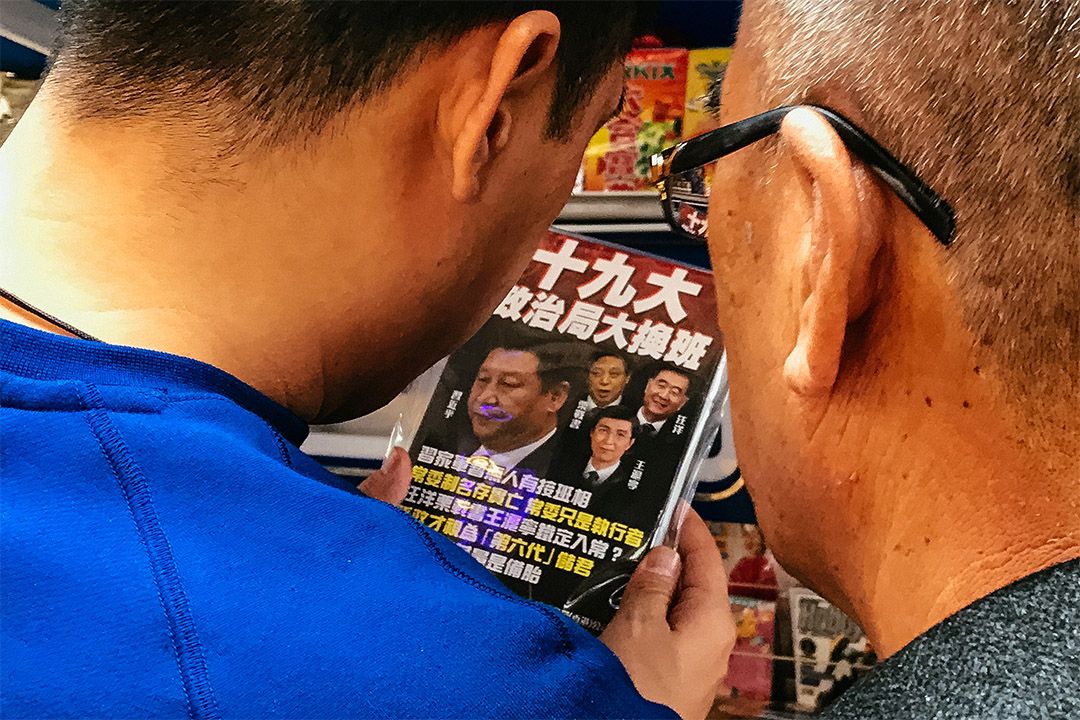
"Consider anti-communism a good business"
From 2003, when mainland tourists were allowed to travel freely in Hong Kong, until around 2012, China’s political scene was full of turmoil. The number of customers and themes of banned books has doubled all the way, and the market has expanded rapidly.
In bookstores, the theme of history can only be put aside, and the front row is often the cover design of those unique aesthetics: the portraits of senior officials are arranged one by one, bearing the horror of "secret news", "insider", "peach color" and so on. title.
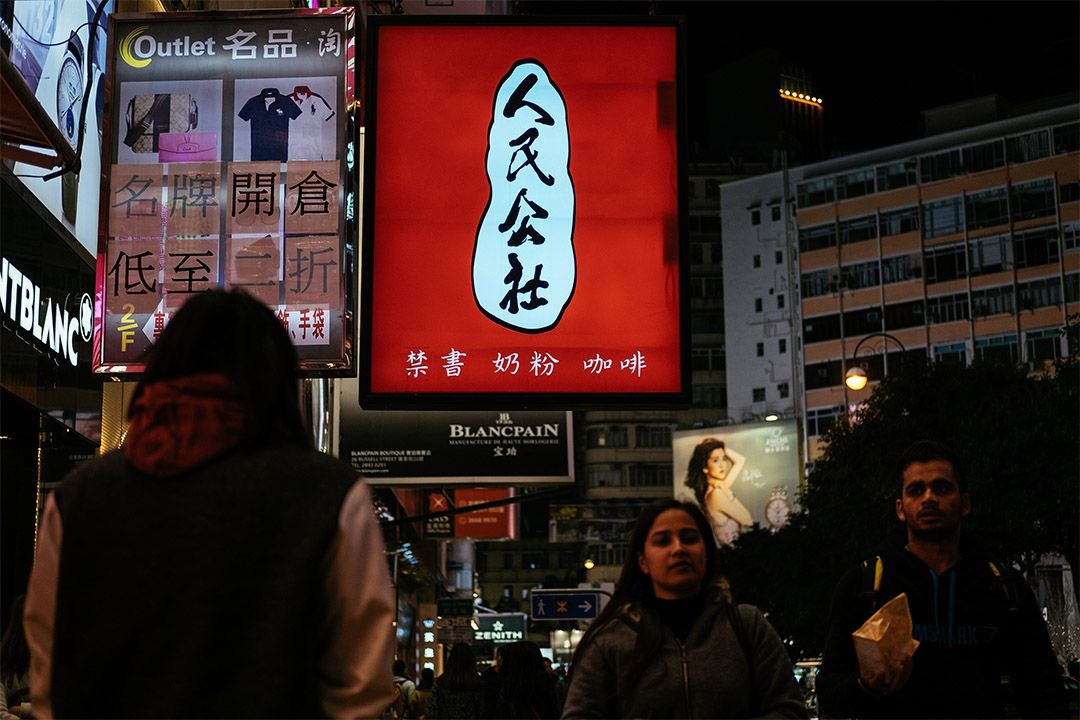
Publisher Bao Pu said: "After the free exercise, the number of banned books has generally increased, but the quality has declined, because there is only so much news, the threshold for publishing books is very low, and the market is so large. Especially after the Wang Lijun incident in 2012, that year There are probably hundreds of books about Wang Lijun and Bo Xilai, some of which are news this week, and the books will come out next week."
Duan Media contacted a banned writer through encrypted interviews on the Internet. He has cooperated with Mighty Current Publishing House since 2012, and described the operation mode of "news this week, book published next week":
I don't know how many pseudonyms I have. One of them is Duan Xiaofeng. You can use this name to refer to me. I worked with Ah Hai (Gui Minhai) for 3 years and wrote about 20 books, all of which were the Wang Lijun incident, the Bo Xilai case, and later Ling Jihua, Xu Caihou, Zhou Yongkang and others.
A book is generally 140,000 words, it takes 20 days to a month, and it takes 10 days to publish. I write at least 10,000 words a day, and I have to leave some time to revise. If you are in a hurry, you can hurry up. The fastest is the first book we collaborated on, "Wang Li Arms and Bo Xilai", which took 10 days to write and 5 days to publish. Ah Hai pushed too hard, so I called him Huang Shiren (Editor's Note: The villain in "The White-Haired Girl", who did all kinds of evil and oppressed the people), and later he used it as the author's name. Generally, the title of the book and the author's name are decided by the boss.
At first I wrote it with what was widely circulated on the Internet, but then it was basically written as a novel, because we had no material. For example, "Attack on the Political and Legal Committee", "Beijing March 19 Coup Begins and Ends", "Ling Jihua to Kill the Family Case", "The Three Gorges Case", etc. Sometimes Ah Hai writes about Zhongnanhai's revelations in the book, but in fact it is all for the sake of selling the book, so it is a mystery . However, in these books, the images of Xi Jinping and Wang Qishan are all positive.
I can get $3 for a book sold and checkout after 5 months. A book usually prints 2,000 copies for the first time. Some books sell well and can be printed several times. For example, "Wang Li's Arms and Bo Xilai" is said to have printed tens of thousands of copies, but some of them are not good, and 1,000 copies are sold. No, the boss loses and we have no money.
"Many special books have appeared in a very special way." Deng Ziqiang of the People's Commune commented.
He found that after Chen Liangyu, former member of the Political Bureau of the CPC Central Committee and secretary of the Shanghai Municipal Party Committee, was sacked in 2006, some "quick-edited books" following political hotspots began to emerge in the market. Such books reached their peak in 2012, and the people's commune was also a beneficiary. "2012 is the most beautiful day. The bookstore is like a supermarket. Many tourists come to scan the goods, and we are overwhelmed." Deng Ziqiang remembers that at the peak, the bookstore could sell 300 books a day.
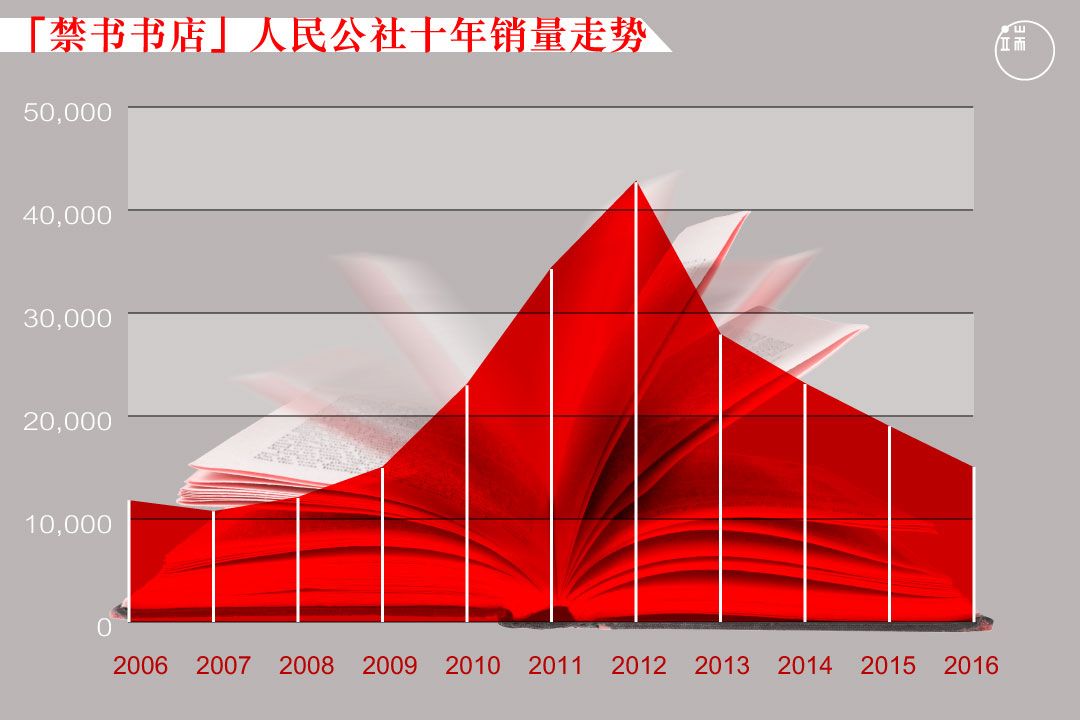
Mighty Current Publishing House was established in 2012. Together with Der Spiegel and Qianshao (Xiafeier), two established publishers, they have become the biggest players in this political gossip book market.
Deng Ziqiang recalled that he would receive at least 10 new books from Juliu Publishing House every month at that time, "their books came out so fast that we couldn't follow them. At the beginning, we would receive their emails first, knowing they would come Any book, only after receiving the book will I know what the content is." Sometimes even when the book arrives, it is found that the name of the publishing house has never been heard before. Deng Ziqiang said that he gradually realized that these are "shadow publishing houses" without commercial registration.
Unlike the mainstream, serious publishing industry, they are a mysterious, alternative circle with its own set of rules. ——Jin Zhong, head of Open Publishing House
Jin Zhong, founder of Open Magazine and Publishing House, joked in an interview with a reporter from Duan Media: "The so-called three caves of the cunning rabbit, the three groups of Mirror, Qianshao, and Mighty Current, I don't know how many publishing houses have been registered and how many pseudonyms have been used."
"Unlike the mainstream and serious publishing industry, they are a mysterious and alternative circle with their own set of rules." Jin Zhong said frankly that he and them "can't talk about the same ideas, they just share the same interests." "They They have no political beliefs, they only believe in money, and regard anti-communism as a good business.” Their customer base is “not ordinary Hong Kongers, but 1.3 billion mainlanders. mainlanders live in a closed environment and come out They are simply hungry, they don’t have much taste in reading and magazines, and they are addicted to seeing the cover (and buy it).”
On the surface, they made a lot of money and reveled happily, but the banned book players did not feel the danger. There are many ways for them to protect themselves, such as maintaining communication with certain departments, avoiding direct attacks on incumbents such as Xi Jinping and Wang Qishan, such as obeying and cooperating at critical moments. However, it didn't work.
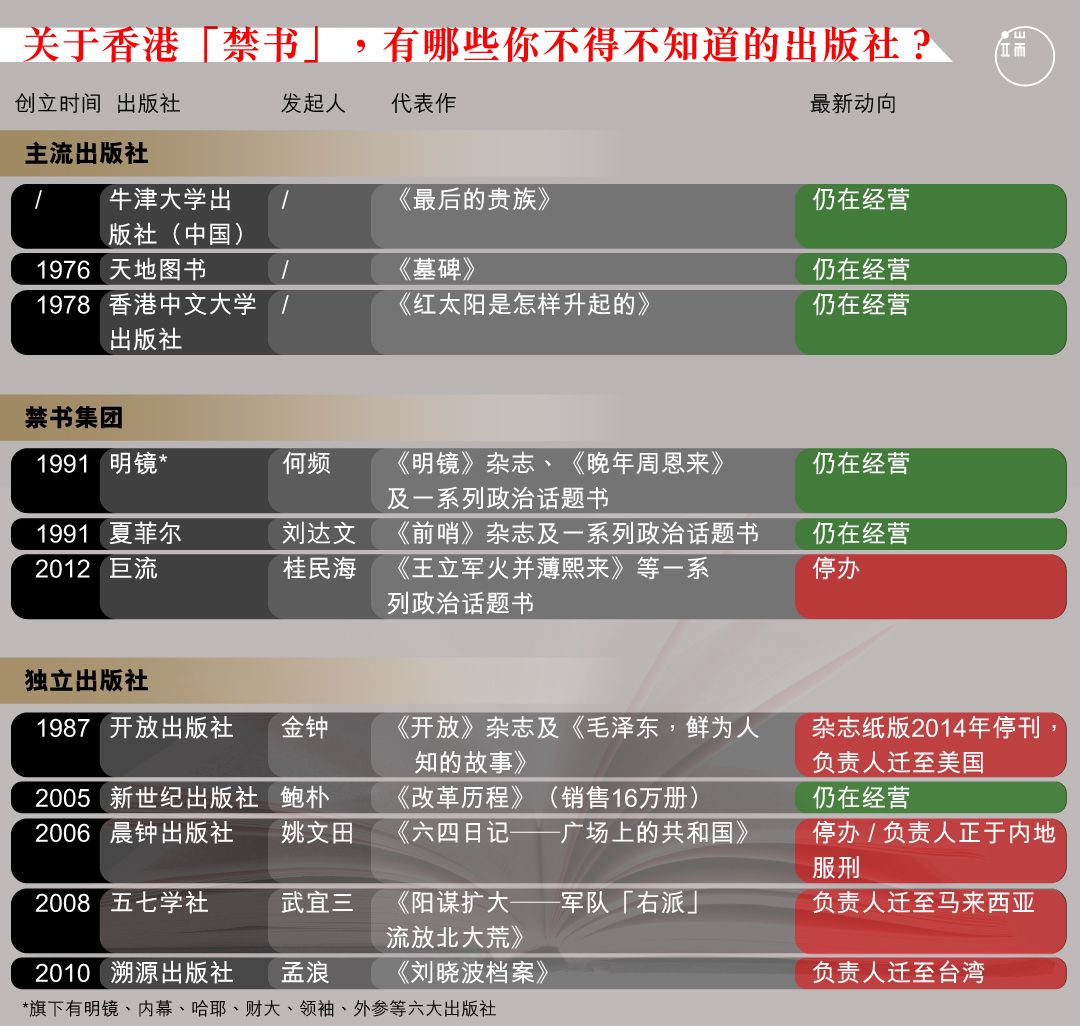
The clues on the eve of the storm
In the Hong Kong publishing industry, almost no one has heard of the "Nanling Project", and no one knows what China's "Work Group Office for Anti-pornography and Illegal Action" will have to do with them.
Booksellers in Hong Kong just discovered that since 2012, when customers buy books across borders, there will be occasional accidents:
Huang Shangwei remembers that a friend of his often mailed Hong Kong political books to mainland customers in Shenzhen, and he lived peacefully for a long time. However, in 2012, his friend's book package was seized and not only confiscated, but the police also tracked him all the way to his Shenzhen residence. Shoot the wrong neighbor's door and your friend escapes instantly.
Also starting in 2012, Deng Ziqiang discovered that mainland tourists began to receive reminders from tour groups - "Don't buy prohibited books back home", and more tourists dared not buy books.
Since Lin Wing-kee ran the Causeway Bay Bookstore, he has been carrying a small amount of books from Hong Kong to the mainland. The first time he was detained by the customs and wrote a "review" was in 2013. Since then, he has rarely brought Hong Kong books through the border in person.
The scattered accidents came to October 2013, and the first major case was formed: Yao Wentian, the founder of Hong Kong Morning Bell Bookstore, was arrested in Shenzhen on the charge of "smuggling industrial chemicals", and was later sentenced to ten years in prison and fined 250,000 RMB. Before his arrest, he was preparing to publish the new book "Chinese Godfather Xi Jinping" by exiled author Yu Jie.
Many point to the arrival of China's powerful leader, Xi Jinping, as the source of the change. Bao Pu, who is more familiar with the operation of the CCP system, believes that cracking down on overseas banned books is a more systematic project that started operation as early as 2010:
This special campaign against "illegal publications", code-named "Nanling Project", was initiated by the Office of the National Anti-pornography and Illegal Working Group Office (referred to as the "Anti-pornography and Illegal Office"). Established in 1989, the Office of Anti-pornography and Anti-Illegal Affairs is composed of 27 departments including the Central Propaganda Department, the Central Political and Legal Affairs Commission, the Ministry of Public Security, and the General Administration of Customs. According to a 2010 Xinhua News Agency report, the "Nanling Project" should "establish and operate five joint defense and cooperation mechanisms, including information sharing and case investigation, and intensify efforts to jointly crack down on various illegal publications." In February 2012, on the eve of the 18th National Congress of the Communist Party of China, the special action was narrowed down to "Hong Kong politically harmful reading materials", and was delegated to all provinces, cities and counties across the country for implementation.
The search shows that since May 2013, many local government websites, such as Dalian City in Liaoning Province, Jiujiang City in Jiangxi Province, Suzhou City in Jiangsu Province, Xiangyuan County in Shanxi Province, etc., have successively announced the "Special Control of Blocking and Countering Hong Kong's Reactionary Publishing Activities". "Cleaning the Source" Action Work Plan", which stipulates that it is necessary to "check, block and counteract illegal publications" through "entry, postal transportation, printing, market, Internet" and other channels, and particularly emphasizes "it is strictly forbidden for party members and cadres to publish politically harmful publications abroad." Publications and Articles and Notice of Importation of Harmful Publications".
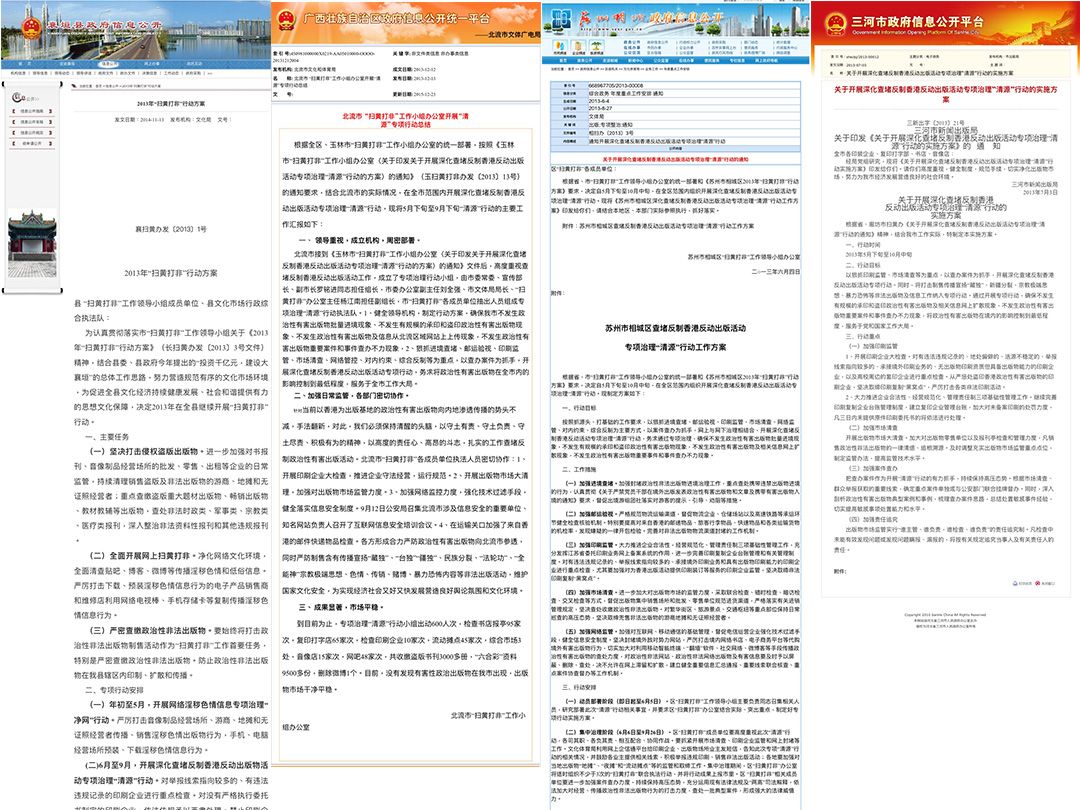
When it becomes difficult to bring books into the country, the number of tourists who buy books will naturally decrease. Although the entire publishing industry is undergoing a transformation and print publishing itself is declining, banned books, as a special market, are more affected by some special factors, such as anti-corruption. People's commune bosses found that their once big source of customers, officials from mainland China, dwindled.
"They usually have valet and assistants, and they feel like fierce people. They will say, 'Help me get more of these books and give them to whoever'. Said, now, such large customers have rarely appeared in bookstores.
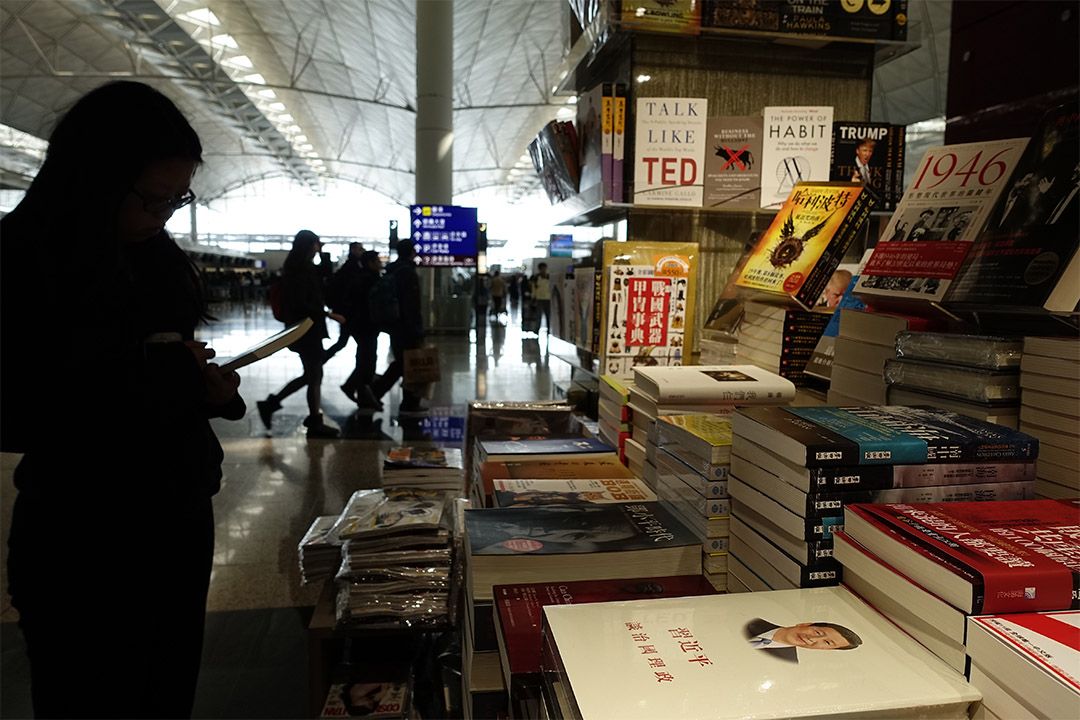
Not only are there fewer book buyers in China, but in Hong Kong, the channels for selling books are also shrinking. Huang Shangwei has witnessed how United Group, the largest Chinese publisher, sells less and less political books.
United Group has opened 55 bookstores in Hong Kong, including Sanlian Bookstore, Zhonghua Bookstore and Commercial Press, accounting for more than half of the current number of bookstores in Hong Kong. They are more often the dominant, larger, street-front shops than the independent bookstores crammed upstairs.
Huang Shangwei remembers that since about 2011, the United Group has taken back the power of entering books from the managers of the bookstores to the Liyuan Books and Newspaper Company, which is responsible for the distribution. Since then, it has become more difficult for Tianyuan Bookstore to deliver the books to the United Group. In October 2015, Tianyuan Bookstore released a new book "Farewell to the General Staff" by Open Publishing House. The book was written by Luo Yu, the son of Chinese general Luo Ruiqing, recalling the struggles within the CCP that he witnessed over the years. At that time, Tianyuan Bookstore had delivered 20 books to a store under the United Group upon request, but two weeks later, the 20 books were returned in their entirety without opening.
Before the Causeway Bay Bookstore incident, Tianyuan Bookstore only had four important sales points left: its own bookstore, Causeway Bay Bookstore, People's Commune and Tiandi Books. Due to the increasingly difficult distribution work and the increase in warehouse rent, in December 2015, Tianyuan Bookstore decided to retire a large warehouse of 6,000 square feet, and only kept a small warehouse of more than 1,000 square feet that had been purchased earlier in the 1980s. storehouse. Over the winter, all the employees of the garden together tore up 160,000 books in stock, worth millions.
And this is not the coldest winter yet.
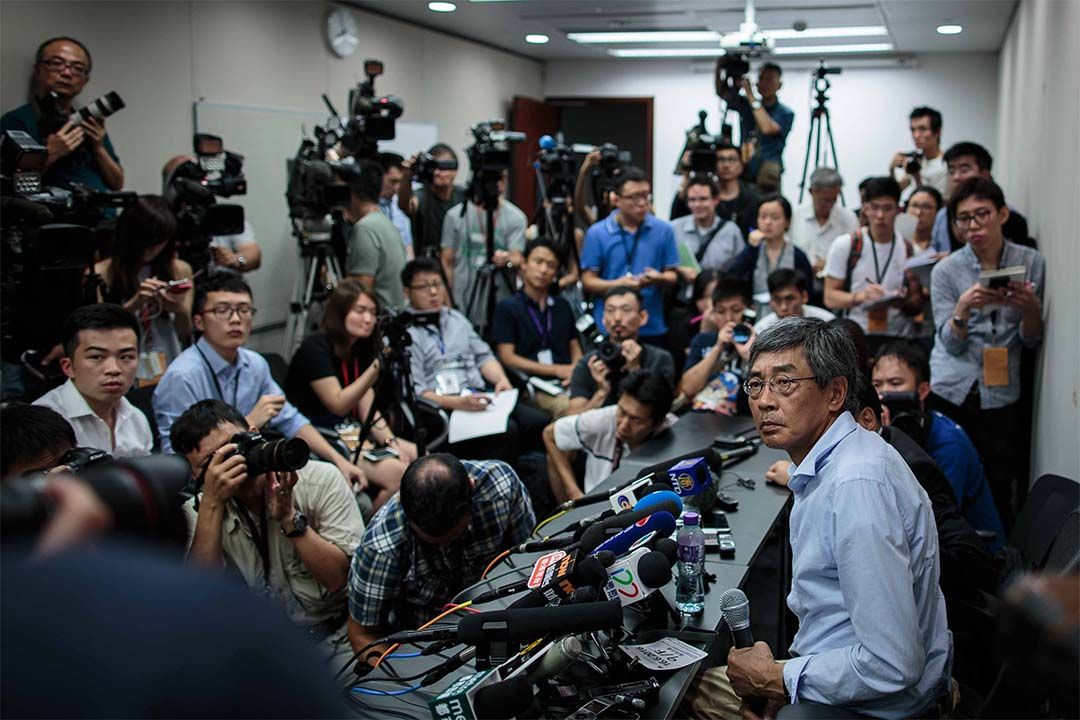
Scattered things, everything that was originally imagined has changed
In mid-October 2015, Mighty Stream shareholders Gui Minhai and Lu Bo disappeared successively in Thailand and Shenzhen. In late October, Mighty Stream business manager Zhang Zhiping was arrested in Dongguan, and Mighty Stream's Causeway Bay Bookstore manager Lin Rongji disappeared in Shenzhen. In December On the 30th, Li Bo, a shareholder of Mighty Stream Media, disappeared directly in Hong Kong.
The Xinhua News Agency previously reported on a new batch of special campaigns, code-named "Qingyuan 2015", which called for a comprehensive crackdown on "harmful foreign culture, reactionary and harmful information from Hong Kong and Taiwan." However, no one expected that the blow would happen in such a crude and direct manner.
Until Li Bo disappeared, the whole of Hong Kong was dumbfounded. Previously, the banned book dealer was arrested in the mainland, and the public was indignant, and it was often interpreted as "unlucky": in China, according to Chinese law, anything is possible. But the Li Bo incident is the first time that a bookseller has been taken away from Hong Kong, and the public anxiety caused is unprecedented: the so-called "banned books" are legally printed, published, and sold in Hong Kong. If they are arrested in Hong Kong, how can one country, two systems exist?
On January 17, 2016, CCTV broadcast Gui Minhai's confession clip. Gui admitted that he had caused death by drunk driving in the Mainland many years ago, and smuggled out of the country while serving a suspended sentence. "The Communist Party's strategy has always been to choose the weakest link in the opponent's morality," said an unnamed senior person in the publishing industry who analyzed the media. He said that although he doesn't like Mighty Current and other publishing houses that disrupt the banned book market, no matter what Hong Kong has freedom of speech and the rule of law, Causeway Bay Bookstore has greatly shaken these bottom lines, not only destroying the banned book industry, but also humiliating Hong Kong. .
On January 28, Lu Bo, Zhang Zhiping, and Lin Rongji appeared on Phoenix TV and admitted that they were engaged in "illegal business operations." On January 29, Li Bo appeared on Phoenix Satellite TV, claiming that he "voluntarily smuggled back to the mainland and cooperated with the investigation". In March, Lu Bo, Zhang Zhiping, and Li Bo returned to Hong Kong one after another, and have since silenced the media.
Until June, Lin Rongji returned to Hong Kong and told the whole process of his arrest. He became the only missing bookseller who publicly broke the news to the media. He is still urged by the mainland judicial authorities to "return to the mainland for investigation".
"It was a thunderbolt." Ms. Zhang from Tianyuan Bookstore recalled that throughout 2016, the fear spiral in the banned book industry continued to rise, and a large bookstore, which has always been not afraid of being sensitive, began to withdraw books from Tianyuan's agents. After that, they were also shocked, and everyone in a bookstore was arrested for no reason."
Many publishers have encountered situations where authors no longer dare to contribute. "This year, there is a book, "How Can History Go Wrong Forever". In fact, there is no sensitive content, but the name is a little special, but the author is also in trouble in the mainland." Huang Shangwei said.
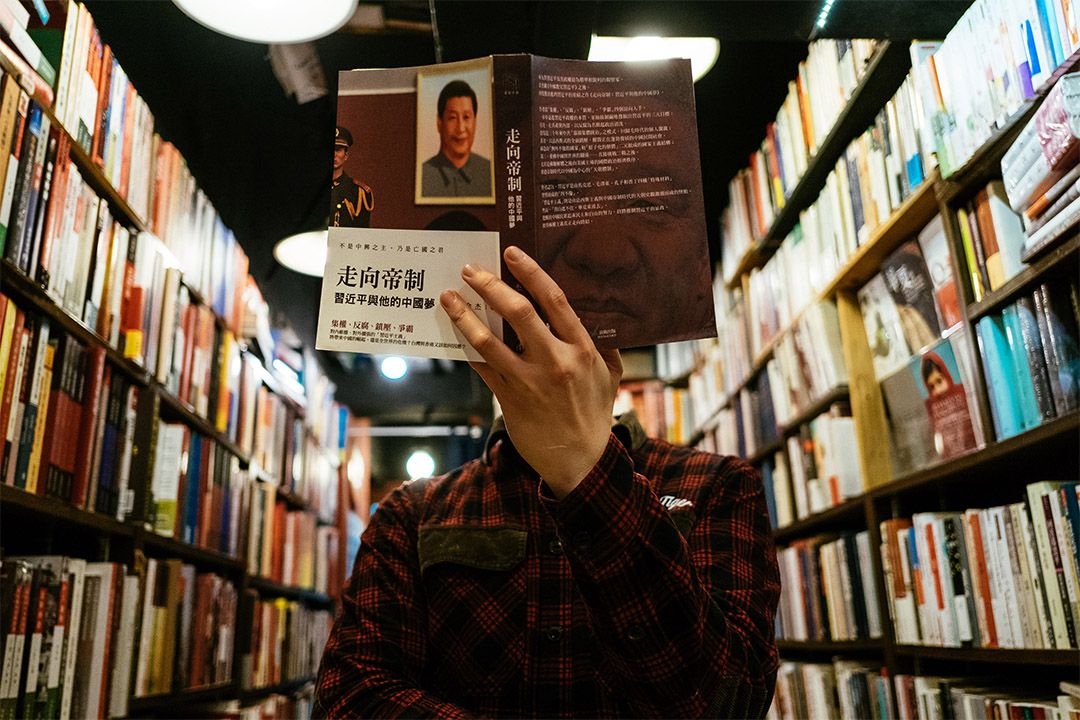
There are also bold authors who cannot find a Hong Kong publishing house willing to accept them. Yu Jie's new book, "Towards the Empire: Xi Jinping and His Chinese Dream," could not be published in Hong Kong, but was eventually published in Taiwan.
Bao Pu even encountered rejection by a Hong Kong printing house for the first time. He published the new book "Qincheng Kingdom History" by mainland non-fiction author Yuan Ling this year. He said that compared to his past publications, it was not really sensitive content, but the Hong Kong publishing house that he had worked with for ten years refused to print it, which made him He lamented that Hong Kong's reputation for "free publishing" was dying.
Bookstores are also under increasing pressure. The independent bookstore, who did not want to be named, also began to hesitate whether to continue selling politically sensitive books, because they received a warning from the landlord: "Don't sell sensitive books. If you sell them, I won't rent them to you."
What's more, the books published by the United Group, and the bookstores under the United Group are not sold: In December 2016, the Chinese writer Yang Jisheng, who wrote the famine documentary "Tombstone", just published a new book in Hong Kong, "Heaven and Earth Overturned - Chinese Culture". History of the Great Revolution, published by Tiandi Books and published by United Group, but none of the bookstores under United Group sells this book. Duan Media called Sanlian Bookstore for inquiries, and the other party only said: "I don't know, anyway, this book doesn't even have a big warehouse, not all stores."
The number of people buying books has been decreasing. Every city's airports, railways, and customs have set up strict inspection channels for printed matter, making it more difficult to bring books, and online shopping at some Taobao stores that sell books in traditional Chinese characters may also bring danger: March 2016 As of July, there have been at least 6 cases in mainland China where individuals were asked by the police to confiscate books published by Hong Kong and Taiwan, or called for interviews, or were accused of "suspicion of buying and storing illegal publications" because of their possession of books published by Hong Kong and Taiwan. Among these people, there are journal editors, publishing house editors, college students doing research, and well-known lawyers. Most of their books are obtained through online shopping or purchasing on behalf of others. Some of them involve politics and cannot be published in the mainland. Others are just romantic sketches. They are also published in the mainland, such as Dong Qiao's "Night Watch".
A well-known publishing house encountered the incident that a pickup truck brought a book across the border, but even the driver was arrested with the book, and dared not speak out.
Like dominoes, every link in the industrial chain is collapsing.
"Now these books are not seeing the light of day." Miss Zhang from Tianyuan Bookstore sighed, they still don't know how to survive the winter of 2016.
Deng Ziqiang is much more cautious than before, but he believes that the market for banned books will always exist. After the number of publishing houses and distribution in Hong Kong has been reduced, the People's Commune plans to import more books from Taiwan publishing houses. Compared with Hong Kong, Taiwan's publishing industry is now more free. In addition, Deng Ziqiang is also preparing to use various channels to explore the service of sending books to mainland customers.
"The demand (demand) is still there. As long as the country is closed for one day, people are still hungry for some information, some information that they think you are withholding." Deng Ziqiang said.
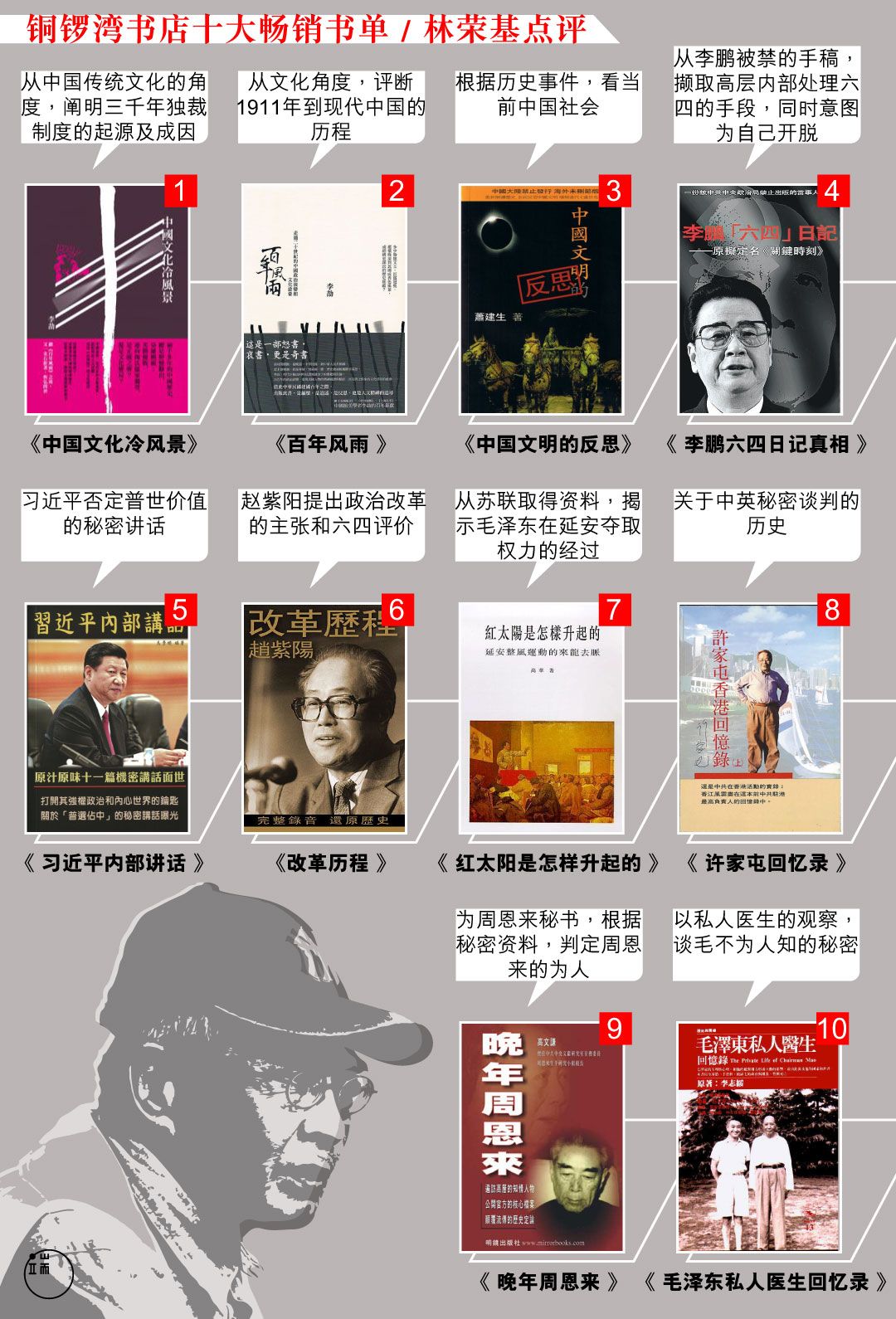
Lin Rongji also felt that since books could not be restrained, banned books would not die. He said that when he visited a bookstore recently, he found that the books published by Mighty Current had been pirated and re-circulated in the market. "Reprint it as if you make money. As the Taiwanese say: 'No one does the business that loses money, but someone does the business of beheading'. That's the truth."
But Huang Shangwei is not optimistic about the future. Banned books will not die, but will Hong Kong die?
Banning books is in the business of free speech. Information flows from the unfree to the free, and from the free to sell back to the unfree. But will such a gap in freedom of speech between China and Hong Kong always exist? This is a huge question mark in Huang Shangwei's heart.
He recalled that the Sino-British Joint Declaration had just been signed in February 1984, when he was optimistic and excited. "Everything has changed now, and it is completely different from the original imagination." On the eve of 1997, Huang Shangwei's family immigrated to Canada.
On December 30, 2016, he left Hong Kong again to return to Canada to reunite with his family. In the future, he intends to continue to support the pastoral bookstore, but when will he return to Hong Kong? He "maybe".
He wasn't the only one leaving.
Meng Lang, a Chinese exile who used to run Trace Publishing House in Hong Kong, moved his entire family to Taiwan and focused on literature. "In 2009, I was still working with Yao Wentian at the Morning Bell Bookstore. That year was the 20th anniversary of the June 4th Incident. We published 11 books in 12 months, which was the "heyday". But last year, I only published I have published three copies, and this year, I haven’t published one.” Meng Lang said that he once wanted to “use Hong Kong, a place with freedom of publication, to collect information that the mainland cannot see, without our judgment, and leave it to the readers themselves. judge".
But now, Mighty Stream shareholder Gui Minhai is still being detained in the mainland. Li Bo seems to be free, but many people in the industry have revealed that his autistic son, who needs long-term care, is currently in mainland China. He and his wife have two One of them must be in the mainland before the other can return to Hong Kong. Yao Wentian, the 75-year-old founder of Chenzhong Bookstore, is also serving his sentence in the mainland. Wu Yisan of Wuqi Publishing House has moved to Malaysia, while Jin Zhong of Open Publishing House has chosen to move to the United States.
(Duan Media reporter Su Xinqi also contributed to this article.)
In July 2017, Duan Media launched a membership mechanism to pay for in-depth content. The in-depth original reports published before this will be open for free, welcome to forward, and we look forward to your paid support.
Original: "Heavy Investigation: One Year After Causeway Bay Bookstore, Death of Banned Book Readers, Authors and Publishers" https://theinitium.com/article/20161230-hongkong-politicalbooksinhongkong/?utm_medium=copy
© Initium Media
Like my work? Don't forget to support and clap, let me know that you are with me on the road of creation. Keep this enthusiasm together!
